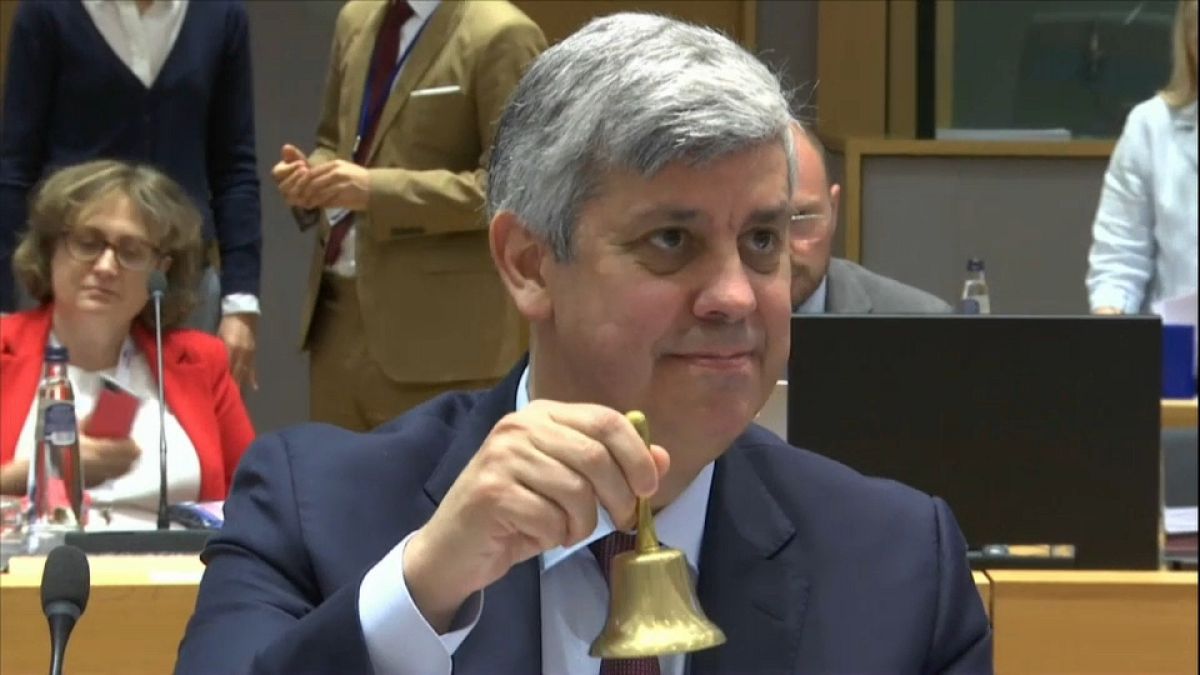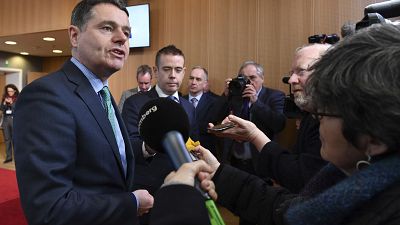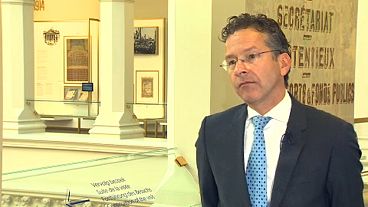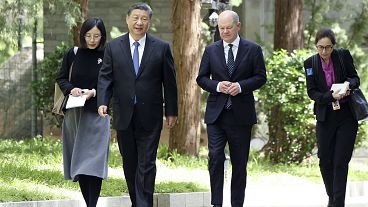It comes after Mário Centeno quit as Eurogroup's president earlier this month.
The race is on to succeed Mário Centeno as leader of the Eurogroup, the informal body bringing together finance ministers of Eurozone countries.
He quit as both Portugal's finance minister and Eurogroup's president earlier this month.
Centeno, credited with bringing Portugal's budget deficit close to zero after it ballooned during Europe's financial crisis, did not say why he resigned.
Finance ministers have until Thursday (June 25) to submit their applications to succeed Centeno.
For the moment, the ones most likely to make a bid for the presidency are Nadia Calviño, Spain’s deputy prime minister for the economy, Pierre Gramegna, Luxembourg’s finance minister and Paschal Donohoe, his Irish counterpart.
The greatest challenges the new president has to face include the socio-economic impact of COVID-19 crisis and the new EU budget. But there are also key Eurozone reform priorities, including the completion of the bloc’s banking union, where progress has stalled.
"I think the job of the president of the Eurogroup will be to find bridges," said Janis Emmanouilidis, director of studies at the European Policy Centre, a think-tank.
Whoever takes the crown must find compromises between the differing nations.
But Emmanoulidis sees the coronavirus economic downturn as an opportunity "to push things forward" and have a more fundamental reform of the Eurozone.
Neither Calviño (a member of the Socialist-led government in Spain) nor Luxembourg’s Gramegna are affiliated with the centre-right European People’s Party, which may enhance their chances of becoming president. This is due to pressure for posts to be more broadly distributed among the European political families.
"Geography, political orientation, where you come from, politically, are issues that people look at," said Emmanouilidis. "So the selection of the Eurogroup president must take into account all of these competing criteria.
"There is great support from southern member states for the Spanish candidate. The German side is not really clear who their favourite is and that is important given their role in the Eurogroup, and then there is the question of how the "frugals" - all those especially in the Northern countries - how they will position themselves."
The election is set to be held on July 9.
The president is elected by simple majority for a term of two and a half years.



